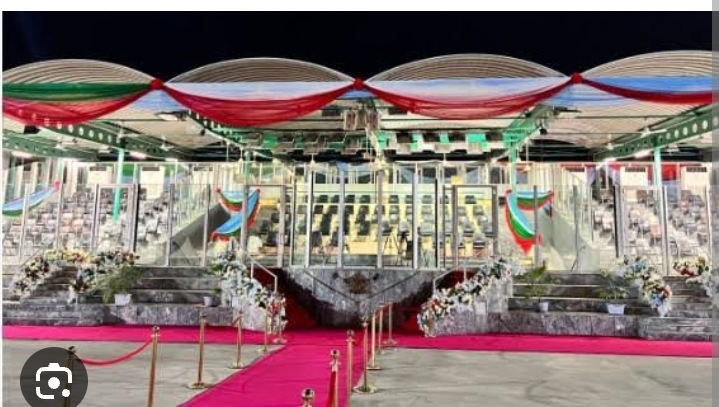Eagle square, Abuja
About Eagle square
Eagle Square, located in the heart of Abuja, Nigeria, is a prominent landmark and a symbol of national unity. It serves as a venue for various events and ceremonies of national importance.
This comprehensive article aims to explore the historical background, architectural features, significance, and the wide range of functions that take place at Eagle Square.
Historical Background of Eagle square:
Eagle Square holds great historical significance for Nigeria. The square was originally named the “Eagle Square” due to its strategic location and the giant eagle statue that adorns the square. It was officially opened on October 1, 1984, to commemorate Nigeria’s independence from British colonial rule. Since then, it has become a central location for celebrating national events and hosting important ceremonies.
Location of Eagle square:
Eagle Square is situated in the central business district of Abuja, Nigeria’s capital city. Its strategic location near government buildings and iconic landmarks such as the Nigerian National Mosque and Nigerian National Christian Centre adds to its prominence.
The architectural design of Eagle Square is characterized by a vast open space covering over 35,000 square meters. The centerpiece is the imposing 360-degree eagle statue, which symbolizes strength, freedom, and national pride. The square’s design incorporates elements of Nigerian culture and heritage, making it a visually stunning attraction.
The Eagle Square Complex:
Eagle Square is more than just an open space; it is a multifunctional complex. Surrounding the square are several notable structures that complement its grandeur. The complex includes administrative buildings, conference halls, exhibition centers, and outdoor recreational areas. These facilities accommodate various events and activities throughout the year.
Importance and Significance:
Eagle Square holds immense importance in Nigeria’s national identity. It serves as a venue for key national ceremonies, including presidential inaugurations, independence day celebrations, and the conferment of national honors. The square acts as a unifying space, bringing together people from different regions and ethnic backgrounds to celebrate their shared heritage and aspirations.
Furthermore, Eagle Square plays a crucial role in projecting Nigeria’s image on the global stage. It has hosted several high-profile international events, such as the Commonwealth Heads of Government Meeting (CHOGM) in 2003 and the World Economic Forum on Africa in 2014. These events promote diplomatic relations, attract foreign investments, and showcase Nigeria’s potential as a regional powerhouse.
Events and Functions:
Eagle Square is a hub of activity throughout the year, hosting a diverse range of events and functions. Some of the notable occasions include:
a. Presidential Inaugurations: The square is the designated venue for the swearing-in ceremonies of Nigeria’s presidents. These historic events attract thousands of citizens, dignitaries, and international guests.
b. Independence Day Celebrations: On October 1st each year, Nigeria commemorates its independence from colonial rule. The square becomes the focal point of nationwide celebrations, featuring parades, cultural performances, and fireworks.
c. National Day Celebrations: Eagle Square is the venue for various national days, such as Armed Forces Remembrance Day, Democracy Day, and Children’s Day. These occasions pay tribute to the sacrifices made by Nigerian servicemen, commemorate democratic milestones, and celebrate the nation’s youth.
d. Cultural and Religious Festivals: The square hosts vibrant cultural festivals that showcase Nigeria’s rich diversity, including music, dance, art, and cuisine. Religious events and gatherings are also held, promoting interfaith dialogue and understanding.
Sports Events: Eagle Square occasionally transforms into a sports arena, hosting tournaments, marathons etc.

